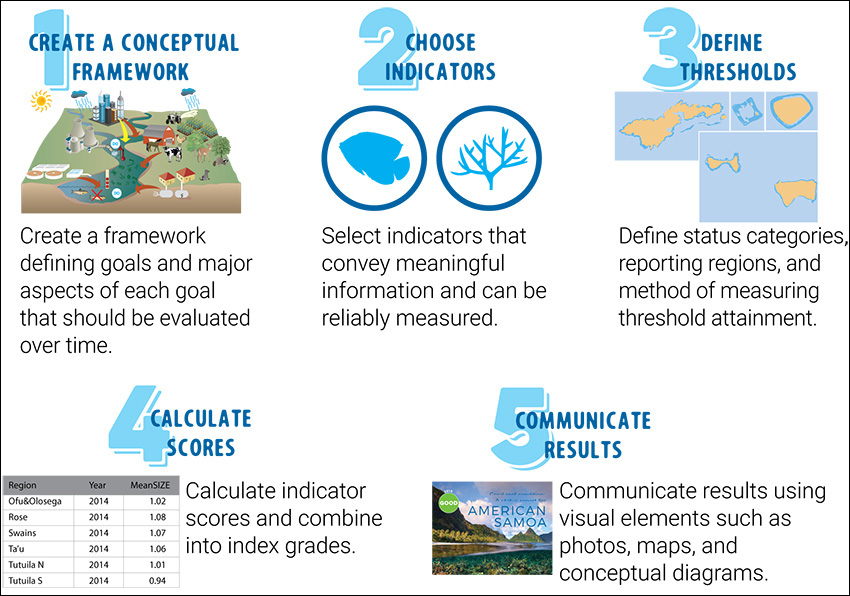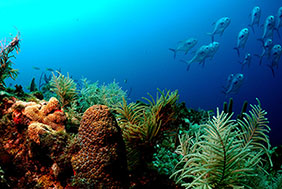-
Home
-
Data & Publications
-
Regional Portals
- About Regional Portals
- Florida
- Navassa Island
- Puerto Rico
- Flower Garden Banks
- U.S. Virgin Islands
- American Samoa
- Commonwealth of the Northern Mariana Islands
- Federated States of Micronesia
- Guam
- Main Hawaiian Islands
- Republic of the Marshall Islands
- Northwestern Hawaiian Islands
- Republic of Palau
- Pacific Remote Island Areas
-
CRCP Activities
- Glossary
National Coral Reef Monitoring Program - Status Reports
NOAA's Coral Reef Conservation Program (CRCP) supports the National Coral Reef Monitoring Program (NCRMP) throughout the U.S. Pacific, Atlantic, Gulf of America (formerly Gulf of Mexico), and Caribbean coral reef areas. This program is a strategic framework for conducting sustained observations of biological, climatic, and socioeconomic indicators in U.S. states and territories. The resulting data provide a robust picture of the condition of U.S. coral reef ecosystems and the communities connected to them.
A key component of this program is a periodic, national-level assessment on the status and trends of U.S. coral reef areas.
This 5-Step process was used to create the status reports:

To develop these status reports for the first time, CRCP partnered with the Integration and Application Network (IAN) at the University of Maryland Center for Environmental Science (UMCES). The primary purpose of the CRCP status report products is to communicate the status and trends of U.S. coral reefs to Congress, NOAA leadership, and the interested public. Individual status reports for each of the Atlantic and Pacific jurisdictions are available, as well as a national summary report that contextualizes all of the jurisdictional reports.
Ecosystem condition status reports are a common approach to synthesizing a large amount of ecosystem monitoring data into a public-friendly report that can be understood by decision makers, managers, and scientists alike. Fundamentally, status reports help answer the question "How is the ecosystem doing?" The goals of a status report are to: provide a broad-level assessment, communicate complex information, use real data, and engage communities. To advance this effort, CRCP and IAN-UMCES brought together science experts, natural resource managers, and other stakeholders from NOAA and local jurisdictions to develop these reports.
National Coral Reef Status Report Download
For more information on the data used and the process for calculating scores please see the National Coral Reef Status Report Scoring Methodology and/or contact Erica Towle.
Atlantic Report Download
- Flower Garden Banks
- Florida
- Puerto Rico
- Puerto Rico cover letter English - 2020
- Puerto Rico English Report - 2020
- Puerto Rico cover letter Spanish - 2020
- Puerto Rico Spanish Report - 2020
- U.S. Virgin Islands
For more information on the data used and the process for calculating scores please see Atlantic methodology document and/or contact Erica Towle.
Pacific Report Download
- American Samoa - 2018
- Commonwealth of the Northern Mariana Islands - 2018
- Guam - 2018
- Hawaii - 2018
- Pacific Remote Island Areas - 2018
For more information on the data used and the process for calculating scores please see Pacific methodology document and/or contact Erica Towle.


